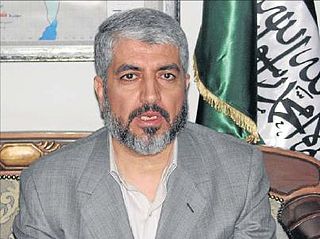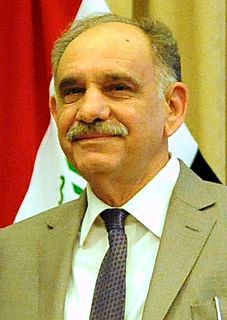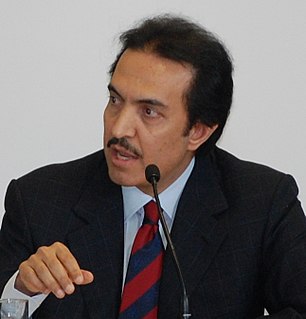A Quote by Khaled Mashal
We are confident that through discussing with Arab and Islamic states, as well as with the League of Arab States, we will be able to reach a common vision towards maintaining the constants of our people and deal with reality.
Related Quotes
The current relationship between Syria and Iran is abnormal. It is unprecedented in Syria's foreign policy history. A new Syria will be an indispensable part of the Arab League and it will work on improving the role of the Arab League and the role of Arab states regionally, specifically because they took a historic and unprecedented decision to back the Syrian people.
Recall that the United Nations commissioned Arab scholars and analysts to publish the Arab Human Development Report. What causes the backwardness, the scholars wondered, of 22 Arab states, covering nearly 300 million people? Their conclusion? Of all world regions, the Arab countries scored the lowest in freedom, media independence, civil liberties, political process and political rights.
In the Islamic world, the U.S. is seen in two quite different ways. One view recognizes what an extraordinary country the U.S. is. Every Arab or Muslim that I know is tremendously interested in the United States. Many of them send their children here for education. Many of them come here for vacations. They do business here or get their training here. The other view is of the official United States, the United States of armies and interventions.
Saudi Arabia is the most fragile of all Arab states, though we're not saying so. And, unfortunately, bin Laden puts his finger on the other longstanding injustices in the Arab world: the continued occupation of Palestinian land by the Israelis; the enormous, constant Arab anger with the tens of thousands of Iraqi children who are dying under sanctions; the feelings of humiliation of millions of Arabs living under petty dictators, almost all of whom are propped up by the West.
The history of Israel-Palestine conflict cannot be understood without its underlying emotional meanders. The emotional frameworks of the loss of Palestine for the Arab-Islamic world touched deep scars that go back to the Crusades, symbolizing a proof of Arab-Islamic decay, political impotence, and perceived (British/French) betrayal and antagonism.

































